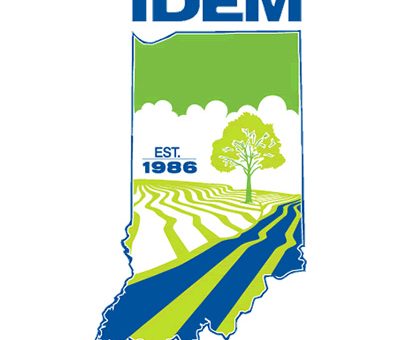
(INDIANAPOLIS) – Welcome back to Money Monday! This month, we’re highlighting the important work done by the Indiana Department of Environmental Management (IDEM).
IDEM’s approximately 800 employees work to protect human health and our environment through state and federal regulations. They issue permits for air, water, and solid/hazardous waste to ensure discharges stay at environmentally-safe levels. While IDEM receives some federal funding, they also use state tax dollars to protect Hoosiers and our environment.
Let’s explore some of their work.
Keeping Indiana’s Water Clean
IDEM’s Office of Water Quality protects public health and the environment by ensuring both surface and groundwater is safe. This includes assuring that our drinking water and water found in Hoosier wetlands, lakes and streams meet state and federal quality standards. With over 62,000 miles of rivers, streams and drainage ditches throughout Indiana, that’s no small task!
Preventing Pollution
IDEM’s Pollution Prevention (P2) section works to reduce waste generated by Indiana businesses and private citizens like you and me. This includes education on pollution prevention best practices to help ensure a clean and sustainable environment. Additionally, IDEM issues permits to control pollution from known sources in our state’s waterways.
Making the Air We Breathe Cleaner
Having clean air to breathe is a must for all Hoosiers! Air quality impacts the health of every person every minute of every day. IDEM’s Office of Air Quality knows this and works to ensure our air meets stringent state and federal air quality standards. One of goals is to reduce open burning by residents, business and agricultural operations. Open burning releases smoke and other emissions directly into the air that negatively affect the health of all individuals especially children, those with asthma or other health issues, and the elderly.
Regulating Pollution from Animal Farms
A farm where animals are kept together in one contained area for feeding and maintenance (as opposed to grazing in a pasture) is considered an animal feeding operation. For these types of farms, the manure produced by these animals must be disposed of properly. IDEM regulates the design of facilities such as these to ensure that manure storage and storm water run-off from the farm does not pollute area waterways.
Responding to Environmental Emergencies
IDEM’s Office of Land Quality’s Emergency Response Team responds to many types of environmental emergencies such as fish kills, hazardous waste spills or other spills that could negatively impact Indiana’s natural resources. In January 2020 alone, IDEM received over 100 reports of spills that required an investigation. In 2019, over 1,700 spills were reported and assessed in Indiana.
Keeping our environment healthy and clean is a huge task and something that IDEM takes very seriously. We’ve only explored some of the work done by IDEM. To learn more about IDEM, check out their website at www.idem.IN.gov.



